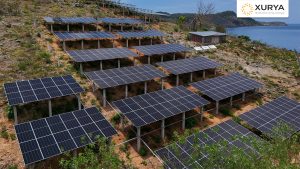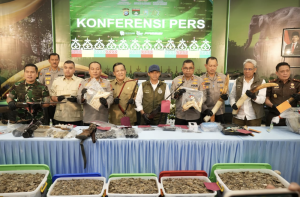Jakarta – A recent Deloitte report said that the Asia-Pacific region needs between USD 80 trillion and USD 90 trillion in investment by 2050 to accelerate the transition to a low-carbon economy.
In a report titled “Accelerating Net-Zero: Critical Opportunities in Asia Pacific’s Climate Policy,” Deloitte warns that Asia Pacific not only has a huge opportunity to lead the clean energy transition, but also faces the greatest risk if decarbonization measures are delayed. If the transition is effective, the region’s economic growth potential could reach USD 50 trillion by 2070.
In the report, published in early September, Deloitte identifies four key pillars that must be strengthened to accelerate the transition. First is future fuels, including green hydrogen, which plays a vital role in the decarbonisation of transportation, heavy industry, and electricity, but still faces high costs and supply constraints.
Second, critical minerals such as nickel, lithium, and cobalt, for which demand is surging but supply is concentrated in a few countries, pose a risk of environmental problems. Third, battery production, which must grow rapidly to support electric vehicles and energy storage, but faces resource constraints and margin pressures.
The fourth industrial transformation, which requires a shift from fossil fuel-based processes to low-emission technologies, is viable, although viable commercial options are still limited.
The Challenges of Southeast Asia
According to Deloitte Southeast Asia’s Sustainability & Emerging Assurance Leader, K. Ganesan Kolandevelu, Southeast Asia is at a crucial crossroads in the next wave of decarbonization. He believes that rapid economic growth, high energy demand, and different starting points in each country make this transition challenging.
Ganesan said that clear and coordinated policy direction is needed so that large investments can come in, new technologies can develop, and cross-border collaboration can be realised. He added that the private sector must also adapt its operating models and supply chains to capture opportunities from the growing low-carbon industry.
Deloitte asserts that this decade will be a decisive period. Without acceleration, the region will face significant losses due to the climate crisis, ranging from natural disasters and energy security concerns to a decline in global economic competitiveness. (Hartatik)
Banner photo: Image generated by OpenAI’s DALL·E via ChatGPT (2024)















